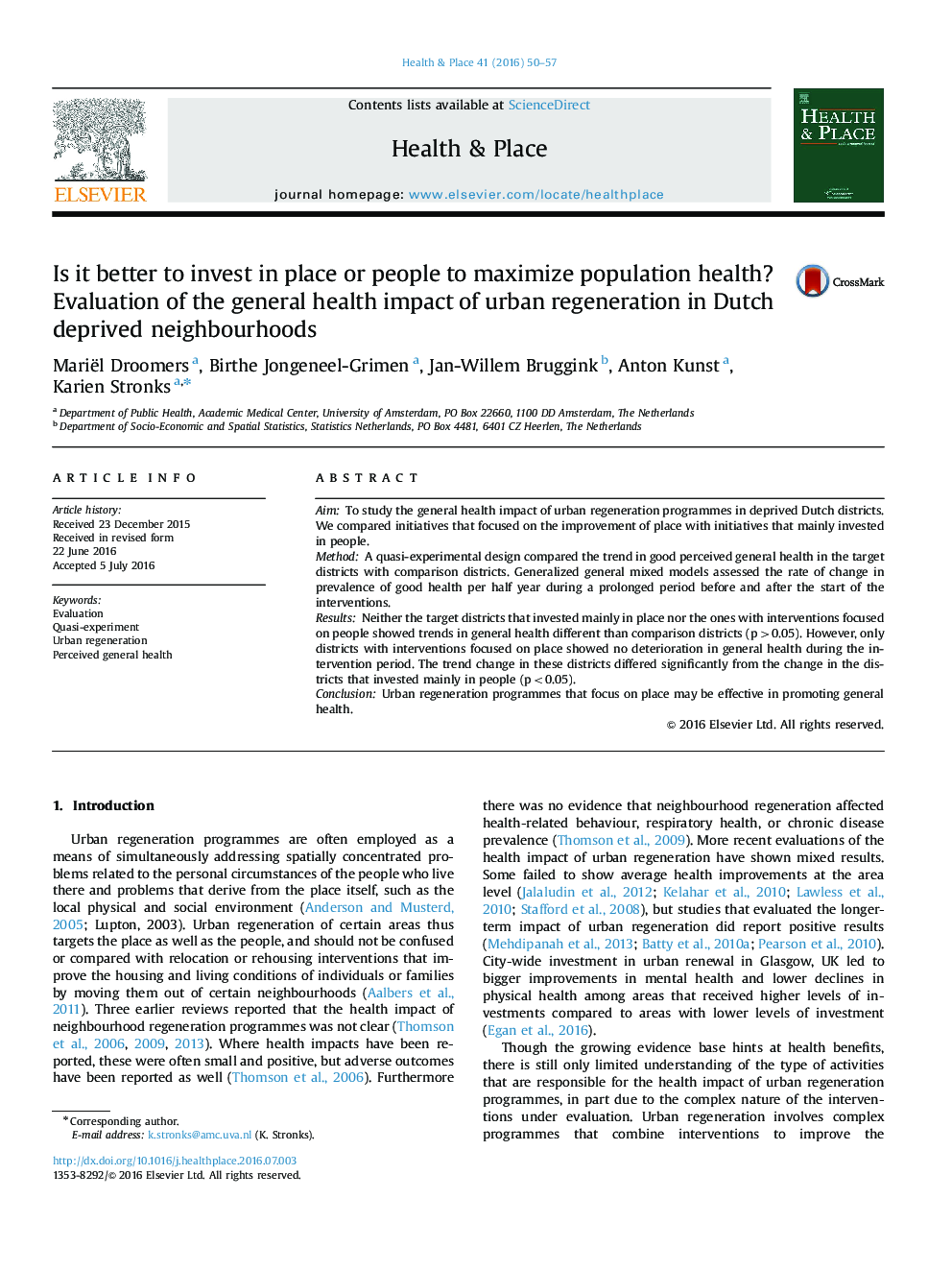| کد مقاله | کد نشریه | سال انتشار | مقاله انگلیسی | نسخه تمام متن |
|---|---|---|---|---|
| 1048565 | 1484520 | 2016 | 8 صفحه PDF | دانلود رایگان |
• There is limited understanding of the type of urban regeneration activities that lead to a health impact.
• This paper evaluates the health impact of the Dutch District Approach, an urban regeneration programme.
• We compared programmes that invested in improving place with those that invested in people.
• Overall, we did not observe positive changes in trends in general health after the implementation of the District Approach.
• The post-intervention trend in general health was, however, more positive in districts with interventions focused on place.
AimTo study the general health impact of urban regeneration programmes in deprived Dutch districts. We compared initiatives that focused on the improvement of place with initiatives that mainly invested in people.MethodA quasi-experimental design compared the trend in good perceived general health in the target districts with comparison districts. Generalized general mixed models assessed the rate of change in prevalence of good health per half year during a prolonged period before and after the start of the interventions.ResultsNeither the target districts that invested mainly in place nor the ones with interventions focused on people showed trends in general health different than comparison districts (p>0.05). However, only districts with interventions focused on place showed no deterioration in general health during the intervention period. The trend change in these districts differed significantly from the change in the districts that invested mainly in people (p<0.05).ConclusionUrban regeneration programmes that focus on place may be effective in promoting general health.
Journal: Health & Place - Volume 41, September 2016, Pages 50–57
